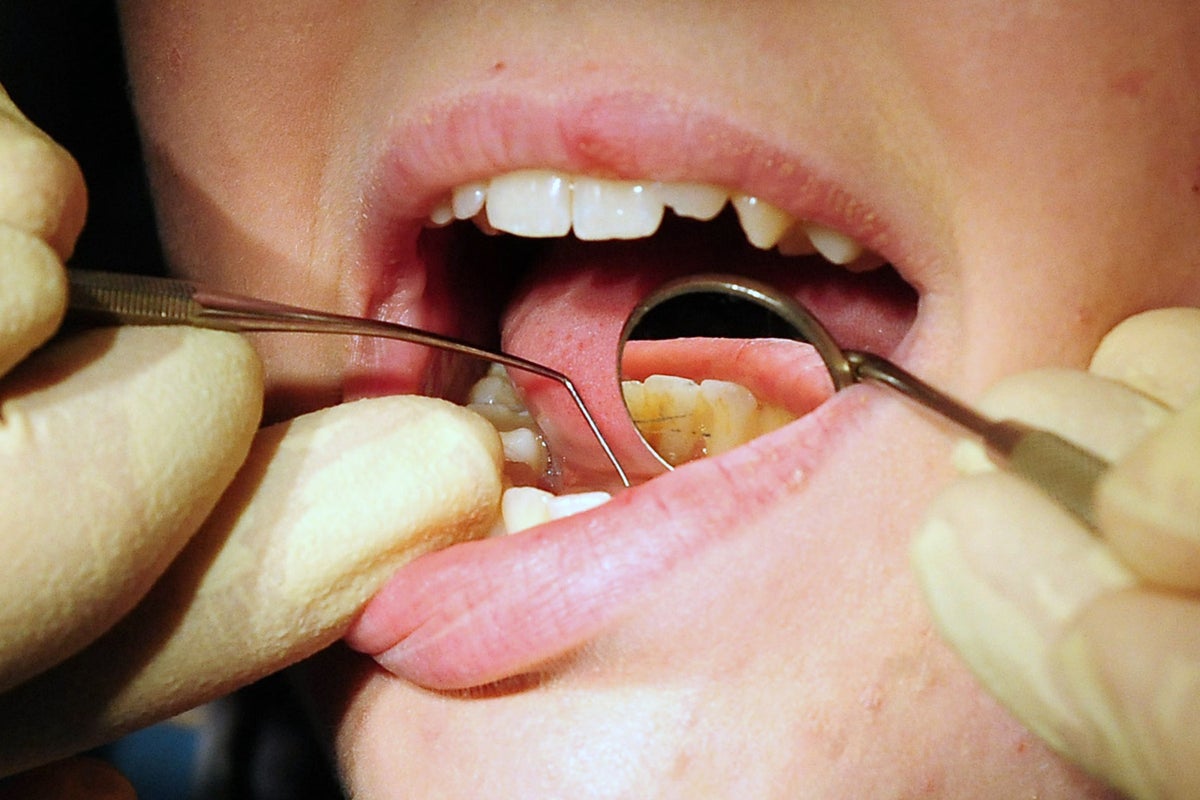
People in the UK have been forced to pull out their own teeth at home because they can not access or afford an NHS dentist, a damning new report has found.
The Health and Social Care Committee’s examination of NHS dentistry calls for “urgent and fundamental reform” and said there was evidence of pain and distress that is “totally unacceptable in the 21st century”.
The document cites a YouGov poll of 2,104 people across the UK conducted in March 2023.
It found 10% of people admitted to attempting “DIY dentistry”. More than half (56%) of the group carried it out in the last year and 20% said they did so because they could not find an NHS dentist.
The survey also found 22% of people were not registered with a dentist, with 23% of those saying it is because they cannot afford treatment.
Rarely has an inquiry been more necessary than this one. To hear of someone in such pain and distress that they resorted to using pliers to extract their teeth demonstrates the crisis in NHS dental services— Steve Brine
The committee received written evidence from more than 30 Healthwatch groups, with case studies provided by Healthwatch Lincolnshire highlighting how people had pulled problem teeth out with pliers, or been forced to make a five-hour round trip to see an NHS dentist.
A roundtable hosted by the committee in June also heard accounts of patients extracting their own teeth at home, as well as people feeling isolated due to worsening oral health.
The report said there is a “significant regional variation” in access to NHS dentistry. Those affected most included people from deprived areas, people from ethnic minorities, homeless people, people with complex needs such as autism, and refugees.
It also claims freedom of information requests revealed the primary dental care underspend for 2022/23 was forecast to reach £400 million.
Steve Brine, chairman of the Health and Social Care Committee said: “Rarely has an inquiry been more necessary than this one.
“To hear of someone in such pain and distress that they resorted to using pliers to extract their teeth demonstrates the crisis in NHS dental services.
“The problem is compounded by people being unaware of what they’re entitled to and a contract that is unfit for purpose when it comes to paying dentists for treating NHS patients.”
Failure to act will condemn this service to oblivion— Shawn Charlwood
The committee is now calling on the Government to ensure every person who needs an NHS dentist is able to access one a “reasonable distance” from their home and in a “reasonable time frame”.
It is also calling for a dental workforce survey to be commissioned, as well as the roll-out of a patient information campaign to improve awareness of how NHS dentistry works.
Mr Brine added: “What’s particularly frustrating is that recommendations made by our predecessor committee 15 years ago to reform the dental contract have still not been implemented.
“Yet contract reform alone is unlikely to bring back dentists who have already left the NHS or are considering leaving in the near future.
“We endorse the Government’s ambition to ensure that everyone who needs an NHS dentist can access one. Belatedly, now is the time to deliver it.”
Shawn Charlwood, chairman of the British Dental Association’s General Dental Practice Committee, said the report is “an instruction manual to save NHS dentistry”.
He added: “The real question now is whether government or opposition are ready to use it. Failure to act will condemn this service to oblivion.”
Louise Ansari, chief executive at Healthwatch England welcomed the report.
She said: “Ultimately, only a fundamental and fully resourced dental contract reform can tackle these deep-seated problems, and we call on the Government to publish its dental recovery plan urgently.
“NHS dentistry is the second most common problem that the public report to Healthwatch, with more than 400 local reports from across England in the past three years exposing experiences of people suffering in pain, performing DIY dentistry and struggling to pay the costs of treatment.”
An NHS spokesperson said: “While the number of dental appointments available for NHS patients is steadily increasing and the GP Patient Survey found seven out of 10 patients had a good overall experience of dental services, the NHS has already started to address some of these recommendations through initial contract changes last year.
“These significant reforms will continue to further support dental teams to carry out even more treatments and address the inevitable backlogs that built up during the pandemic, while record numbers of dentists, dental therapists and hygienists will be trained as part of the NHS Long Term Workforce Plan.”







